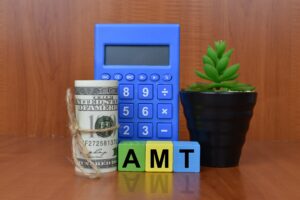Top Tips to Remember When You Can’t Pay Business Taxes

Business taxes can be a nightmare for a lot of companies; especially small businesses that are trying to stay afloat. Things can get even tougher when it comes time to file your return and you end up on the wrong side of the ledger. So what should you do if you end up owing more business taxes than can afford?
First, don’t panic. There are steps you can take to get through the process. Then, make sure you still file your taxes on time, even if you know you don’t have the money. By delaying your filing you will be penalized further and owe even more money. So, file on time. If you’re already late, file as soon as possible.
If you can’t pay your debt in full at tax time, you do have some options. You can still make full payments a little late by filing for an extension. If you will have the funds shortly then this is a good option. Keep in mind, though, that you will be charged interest until the full amount is paid off.
You can also agree to the installment method, which allows you to make monthly payments until you pay off the debt in full. This requires a one-time set-up fee but it also allows you to choose the terms and the method of payment. You can also go with the offer in compromise route, which could lower your total bill if the IRS accepts your offer. Lastly, you could request that the IRS delay its collection if you absolutely don’t have the means to pay off your debt. This is called a temporarily delay collection.
Whatever method you choose, it’s always best to pay off whatever you can as soon as you can, and thus avoid further interest and penalties. If you find yourself in this situation, contact GROCO. We’ll help you determine which route is best for you. Call 1-877-CPA-2006, or click here.
Business Angels for Your Startup Business
Business Angels for Your Startup Business By Mike Cain Setting up a new business can be a daunting prospect. There’s the possibility of failure, and with it, the risk of losing the money you’ve invested in your company, as well as seeing all your months or even years of hard work go to waste. But,…
Securing Second- and Third-Round Venture Capital Financing
Securing Second- and Third-Round Venture Capital Financing By Jim D. Ray Widget sales are booming – the competition is scrambling, demand is up, and the books are finally treading water. Your core management team has big ideas for the future of Widget Inc. Opportunity is abundant; but how will you fund that next big leap?…
Ten Ways Start-ups Use Venture Leases And Loans To Generate Millions
Ten Ways Start-ups Use Venture Leases And Loans To Generate Millions By George A. Parker The rise of venture leasing and lending has created an opportunity for sophisticated entrepreneurs to gain a competitive advantage. Savvy entrepreneurs are using venture leases and loans to generate millions of dollars for shareholders by leveraging existing venture capital. They…
Avoiding AMT
Avoiding AMT More and more taxpayers are finding a hidden tax on their individual tax returns. The alternative minimum tax (AMT) attempts to ensure that high income individuals who benefit from the tax advantages of certain deductions and exemptions will pay at least a minimum amount of tax. This tax was originally designed to keep…




